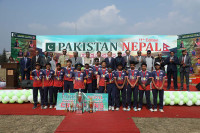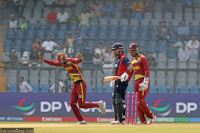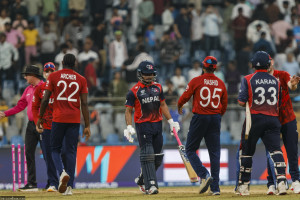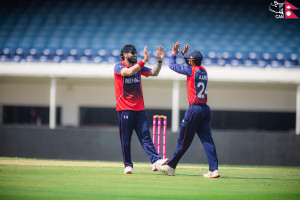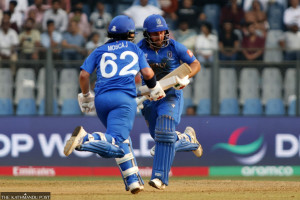Sports
Nepali players getting acclimatised to Tashkent’s heat before crucial games
The Uzbekistani capital isn’t much hotter than Kathmandu but the girls still need to adapt to the dry and draining heat.
Nayak Paudel
The Nepali national women’s team arrived in Tashkent, the capital city of Uzbekistan, on Wednesday, four days before their first game of the AFC Women’s Asian Cup qualifiers. And since Day 1, head coach Patrick De Wilde and his staff have been training their players to acclimatise to the conditions in Tashkent.
The weather in Tashkent is not significantly different from that of Kathmandu. The two cities lie approximately 2,000 kilometres apart with a time difference of 45 minutes. While Tashkent’s weather was around 30 degrees Celsius on Thursday evening (4 pm local time), Kathmandu’s was 28. But the former is less humid with a lower precipitation than the latter.
“This makes breathing difficult,” said Dr Alisha Rai, the Nepal women’s team’s medical officer.
“It is not much of a difference but the players are not used to playing in such heat,” Wilde told the Post.
Nepal are playing their first game of the qualifiers against Laos on Sunday, followed by fixtures against Sri Lanka and the hosts on July 2 and 5, respectively. All the games will be played at Milly Stadium.
The four teams of Group F—Nepal, Uzbekistan, Laos and Sri Lanka—will play each other once, with the stadium hosting two matches a day, the first at 5 pm (local time) and the second at 8 pm.
On the other hand, the hosts, the major challenger for Nepal en route to the Asian Cup, will play all of their games at 8 pm local time. Therefore, Nepal’s only night game, in a bit cooler weather, will be against the hosts on July 5.
“We play our first two games early, that is, in the heat,” Wilde said. “It is why we are trying to get more used to the weather here.”
Rai added that dehydration could be a major problem for the players during the matches. “The girls are drinking more and more water.”
Rai said the players are training during the game-time weather to get used to it. “Having them train in early hours would only increase the toll,” she said. “So we are utilising the early time in gym and tactical meetings.”




 19.12°C Kathmandu
19.12°C Kathmandu




